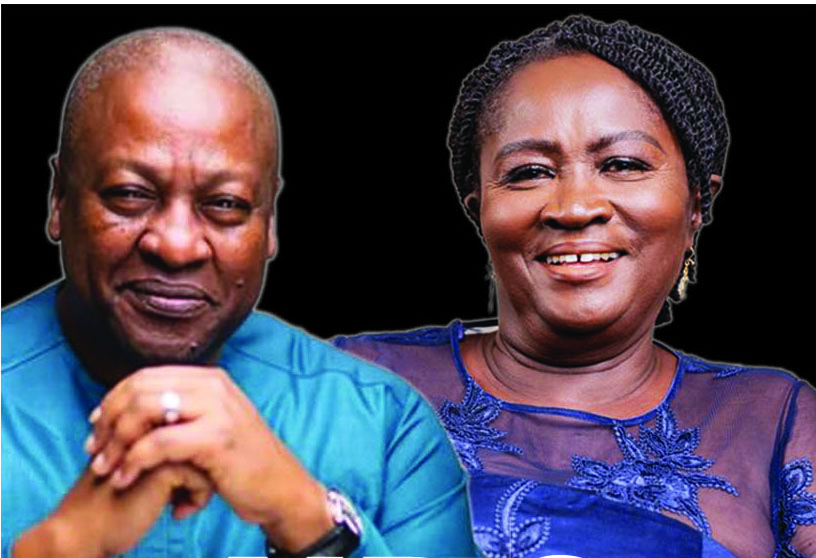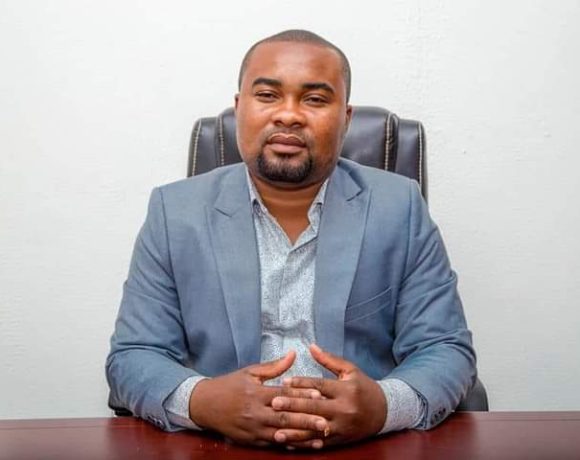Businessman Dares NDC To Start 24-Hour Campaign If…

An influential businessman, Field Marshall, has thrown a challenge to the opposition National Democratic Congress (NDC) to practice what they preach, by putting the party’s 24-hour economy campaign promise into action, if indeed the policy is doable.
Marshall, wants the NDC’s presidential candidate, John Dramani Mahama and the party’s parliamentary candidates, to validate the proposed ‘24-hour Economy’ idea by staging a 24-hour campaign to boost public confidence in the policy, provided it is not a mere rhetoric.
Speaking in an exclusive interview with ‘The Anchor’, Marshall said, “The NDC has been touting this 24-hour economy policy as a solution to all of Ghana’s economic woes, if they truly believe in a 24-hour economy, then I challenge them to demonstrate their commitment by campaigning non-stop for 24 hours.
If they can pull that off, maybe the electorates can start to buy into this vision they’re selling.”
His challenge did not only raised eyebrow, but also bring to fore, the debate about the viability of political promises ahead of national elections in Ghana.
The NDC’s 24-hour policy, a flagship of their 2024 manifesto, aims to rejuvenate Ghana’s economy by promoting round-the-clock business operations, enhancing infrastructure, and creating favorable environment for international trade and investment.
However, Marshall’s challenge, raises questions about whether the party fully comprehends the complexities in implementing such a transformative economic strategy.
Reactions from various sectors of society, have been swift and varied, reflecting the multifaceted nature of the discussion.
Political analyst, James Kwarteng from the University of Ghana, acknowledged the unconventional nature of the challenge, but highlighted its potential to stimulate critical discussions.
“While it’s an unusual request, it raises pertinent questions about the feasibility of campaign promises and the extent to which politicians are willing to demonstrate their commitment,” Kwarteng remarked.
He added, “This challenge compels us to examine the disparity between political rhetoric and practical implementation, which is vital for the electorate to grasp.”
Controversy
Conversely, Dr Ama Boateng, an economist at the Ghana Institute of Management and Public Administration (GIMPA), criticized the challenge, arguing that it fundamentally misconstrues the policy’s purpose.
“The 24-hour economy initiative is about fostering an environment where businesses can choose to operate around the clock, not about compelling politicians to work non-stop. This challenge misses the essence entirely,” she asserted.
Dr Boateng, elaborated that the policy seeks to alleviate infrastructural constraints, enhance energy supply, and bolster security to facilitate businesses that opt for extended operating hours.
The NDC, has yet to respond officially to Marshall’s challenge, leading to speculations about internal discussions on how to navigate this unexpected twist in their campaign.
An unnamed senior party member, speaking on condition of anonymity, dismissed the challenge as a mere distraction.
“Our priority is to present a comprehensive economic strategy to the Ghanaian people, not to engage in theatrical stunts,” he stated.
He said, “We are confident that our policy is sound, grounded in extensive research, and consultations with economic experts, business leaders, and everyday Ghanaians.”
The ruling New Patriotic Party (NPP), has seized the opportunity to critique their opponents, viewing the challenge as a chance to question the NDC’s economic credibility.
NPP Communications Team member, Joseph Baffoe, stated in a widely circulated radio interview that, “If they can’t even campaign for 24 hours, how can they manage an economy 24/7? This underscores the impracticality of their promises. The NDC is, once again, making grand claims without acknowledging the reality on the ground.”
As the December 7 elections approaches, this controversy highlights the nature of scrutiny political parties face regarding their policy proposals in an era dominated by social media and instantaneous communication.
It also underscores the growing influence of business figures like Marshall in shaping political narratives in Ghana, raising questions about the intersection of business interests and governmental policy-making.
Political analysts are closely observing the NDC’s forthcoming strategies. The party must navigate the challenge delicately, address it without allowing it to overshadow their comprehensive campaign message.
Some suggest, the NDC could utilize this moment to clarify their 24-hour economy policy by organizing series of town hall meetings to engage the voters.
The debate has also spurred discussions about work culture, labour rights, and the potential societal repercussions of transitioning to a 24-hour economy.
Labour unions have expressed concerns regarding protection of workers and fair compensation for night shifts, while health experts have weighed in on the potential effects of increased nighttime work on physical and mental well-being.
This situation serves as a pertinent reminder of the intricate relationship between policy proposals, political communication, and public perception in Ghana’s dynamic democracy.
As the discussions unfold, it is evident that Field Marshall’s challenge will have significant implications for the upcoming election campaign and may influence the future trajectory of economic policy and labor practices in Ghana.
With national attention firmly focused on this evolving narrative, the coming days and weeks are set to be a critical juncture for both the NDC and the broader political dynamics in Ghana.
The manner in which the party responds, and how voters interpret this challenge, could significantly shape the electoral landscape and economic discourse for years to come.
Source: Anchorghana.com




